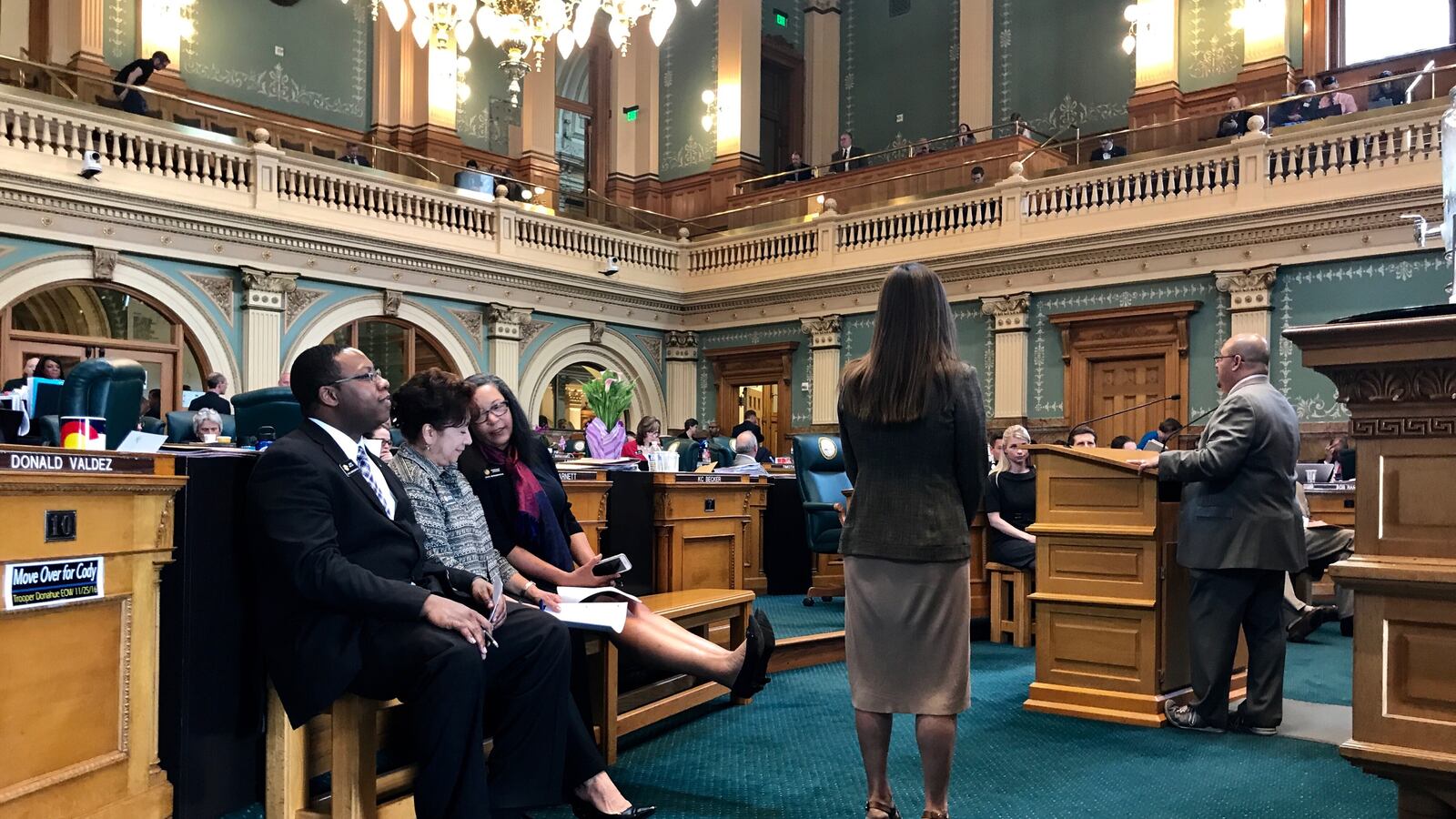A last-minute compromise that could send more local tax dollars to charter schools moved quickly through the statehouse Tuesday clearing critical hurdles in both the House of Representatives and Senate.
The bill faced fierce opposition from a coalition of House and Senate Democrats that said they spoke for school districts that opposed to the legislation. Districts said the compromise violated their constitutionally protected local control.
During debate in both chambers, some lawmakers suggested that if the compromise becomes law, it could be challenged in court.
But both chambers in separate votes gave approval to the bipartisan measure first introduced Monday. The state Senate, however, must give House Bill 1375 a final vote Wednesday before sending it to the governor for his signature.
The compromise, which grew out of a more controversial Senate proposal that also was unceremoniously killed Tuesday, gives school districts two options on how to share their local tax increases.
School districts will be required to either share 95 percent of the additional tax revenue with their charter schools, or they may create a plan that outlines how they will spend the revenue to best meet the needs of their students regardless of what type of school they attend.
The plans would be required to take effect during the 2019-20 school year.
The local tax increases, known as mill levy overrides, generally go to specific programs such as funding full-day kindergarten or teacher training. The tax increases have become popular among school districts as state funding has lagged.
According to a legislative analyst, a collective $34 million in local tax increases is not being shared equitably with charter schools.
In total, 108,793 students were enrolled in charters during the 2015-16 school year. And charter schools are increasingly serving a more at-risk student population.
“This is about having the flexibility to prioritize the kids who need the money the most,” said state Rep. Brittany Pettersen, who forged the deal between charter school supporters and critics.
The charter school funding debate has engulfed both chambers during the last two legislative sessions.
Supporters of the compromise believe the practice of school districts withholding locally-approved tax increases from charter schools is discriminatory.
“Because we believe all students should be treated equitably, we’re going to make sure the money flows that way,” state Rep. Paul Lundeen, a Monument Republican who supported the compromise, said during a debate Tuesday.
House Democrats that represented school districts in Adams County and Aurora that opposed the bill said the compromise amounted to state overreach.
“This is an intrusion of local control,” said Rep. Adrienne Benavidez, an Adams County Democrat. “The charter schools knew what they were doing when they started. We don’t need to fix those problems.”
School districts and charter schools regularly negotiate contracts that include provisions about funding.
As part of Tuesday’s compromise, charter schools would be required to post some of their tax documents on their websites and will no longer be granted two automatic waivers regarding their finances.
While the bill represents a financial boost for many Colorado charter schools, some are being left behind.
Charter schools authorized by the state do not have access to local tax dollars. The bill under consideration does give lawmakers the option to send more money to those schools, but no dollars are pledged this year.
House Bill 1375’s apparent passage Tuesday comes after a chaotic 36 hours.
On Monday, the state Senate gave its final approval to the larger school funding bill.
Pettersen and members of the House Education Committee then amended that bill to include the compromise language.
But some Democrats in both chambers objected, so House Democrats quickly introduced a stand alone bill that contained the compromise language, but had not yet removed the language from the larger bill.
A standoff between House leadership and some Democrats over the order in which the bills would be discussed followed.
After hours of behind the scenes conversations Monday night, the House stripped away Pettersen’s compromise from the school finance bill and gave it initial approval. Then the House gave its first thumbs up to the stand alone compromise bill, House Bill 1375.
That annual school funding bill is still in flux. The House is expected to give it final approval, but the Senate must also sign off on changes made in the chamber, including the removal of an amendment supported by Republicans.
The legislature must adjourn Wednesday.

